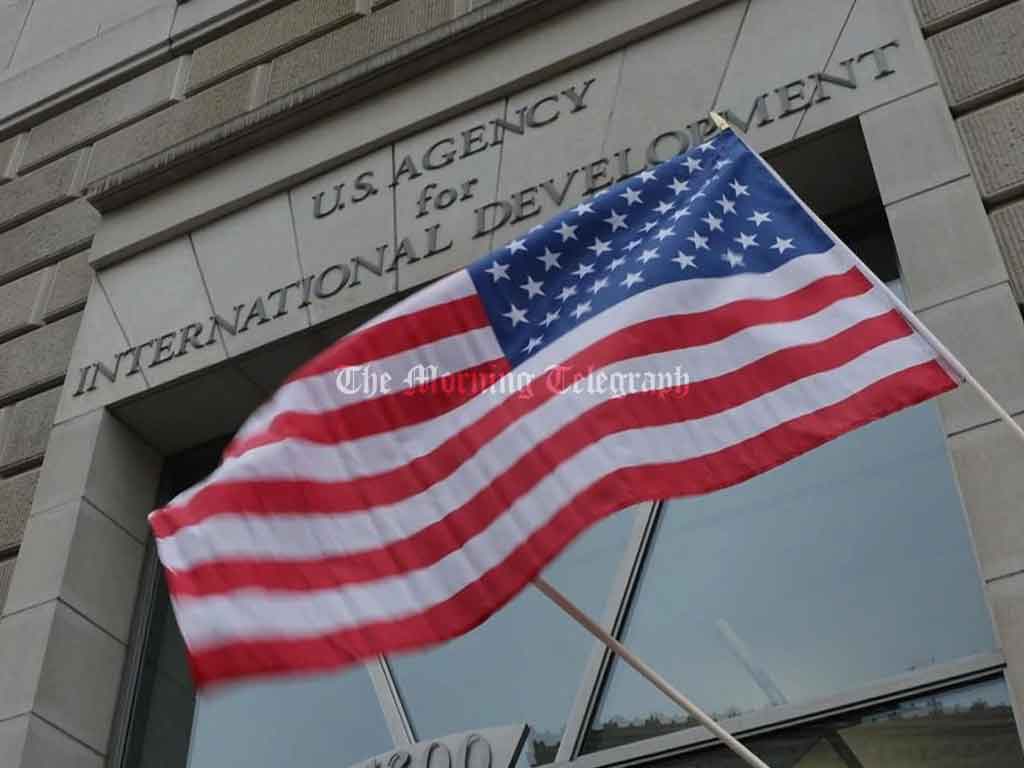
The United States Agency for International Development (USAID) is facing an unprecedented restructuring as all direct-hire personnel worldwide have been placed on administrative leave effective 11:59 p.m. ET Friday, except for designated personnel responsible for mission-critical functions, core leadership, and specially designated programs. This directive, issued on Tuesday night, also includes a plan for relocating USAID staff posted abroad by arranging and funding their return to the United States within 30 days while terminating contracts that are deemed non-essential. The decision has sparked widespread uncertainty and concern among agency employees and international partners, as the Trump administration continues its efforts to dismantle USAID and freeze almost all foreign aid, signaling an intent to abolish it as an independent agency.
The move has thrown the agency into chaos, with thousands of contractors and civil servants losing access to email and agency systems overnight. Employees have described the situation as confusing and distressing, as they struggle to obtain answers. A directive from Acting Deputy Administrator Peter Marocco instructed employees not to enter USAID premises, access agency systems, or attempt to use their position or authority without prior permission. Employees were also required to submit their personal contact information for future communication, but some discovered that the designated contacts were also placed on leave, leading to further frustration and panic. Staff members overseas, many with children in school and spouses with jobs, now face abrupt displacement and uncertainty regarding their futures.
When asked about USAID’s fate, President Donald Trump responded with a laugh, saying, “Sounds like it,” in reference to its dismantling. He alleged, without evidence, that the agency was corrupt and pointed to Elon Musk, head of the Department of Governmental Efficiency, as the one who had exposed fraud within USAID. Musk has been an outspoken critic of the agency, calling it a “viper’s nest of radical-left Marxists who hate America” and a “criminal organization that should die.” His remarks have fueled speculation that the agency’s dismantling is politically motivated rather than based on legitimate efficiency concerns.
The sudden restructuring has raised significant legal questions, with many experts arguing that the president does not have the authority to unilaterally abolish or fundamentally alter USAID’s operations. The Congressional Research Service issued a report reaffirming that since USAID was established as an independent agency by Congress in 1961 under President John F. Kennedy, the president cannot legally dismantle it without congressional authorization. Despite this, the Trump administration appears to be bypassing legal processes by systematically stripping the agency of its operational capacity, effectively rendering it nonfunctional.
Further complicating the situation, Secretary of State Marco Rubio announced that he would assume the role of Acting Administrator of USAID, effectively placing the agency under the control of the State Department. This shift has raised concerns about the future of U.S. humanitarian aid, as critics worry that assistance and development efforts will now be dictated by political and diplomatic considerations rather than independent humanitarian priorities. Many fear that humanitarian programs crucial to vulnerable populations in conflict zones and disaster-affected regions could be severely impacted or discontinued altogether.
In addition to placing staff on leave, USAID headquarters and annex offices in Washington, D.C., Leesburg, Virginia, and Springfield, Virginia, have been closed for the remainder of the week. Employees were initially instructed to telework, but many were subsequently denied access to systems and emails, leaving them in limbo. One USAID official described the situation as feeling like they had been treated as criminals, stating that colleagues were in tears and uncertain about their next steps. Many staff members have worked for decades in the agency, and the sudden removal of access to their work has left them feeling abandoned and powerless.
Shortly after taking office last month, Trump signed an executive order pausing all foreign aid for 90 days, which has already led to significant program shutdowns and layoffs. USAID, which serves as the primary humanitarian arm of the U.S. government, disperses billions of dollars annually to alleviate poverty, treat diseases, and respond to global crises, including famines and natural disasters. With foreign aid frozen and USAID being dismantled, concerns are mounting that life-saving assistance for millions of people worldwide will be drastically reduced or eliminated.
The administration’s handling of USAID has triggered backlash from congressional Democrats and international human rights organizations. Critics argue that dismantling the agency undermines U.S. global influence, weakens its leadership in international development, and could lead to long-term geopolitical consequences. Many also see the move as part of a broader effort to shift America’s foreign policy away from humanitarian engagement and toward a more isolationist stance.
The future of USAID remains uncertain, as legal experts and lawmakers examine whether they can challenge the administration’s actions in court or through legislative means. However, with key personnel being removed and agency functions being dismantled, the damage may already be irreversible. Unless Congress intervenes, USAID, which has played a crucial role in U.S. foreign policy for over six decades, may cease to function as an independent humanitarian agency, fundamentally reshaping America’s role in global aid and development.




